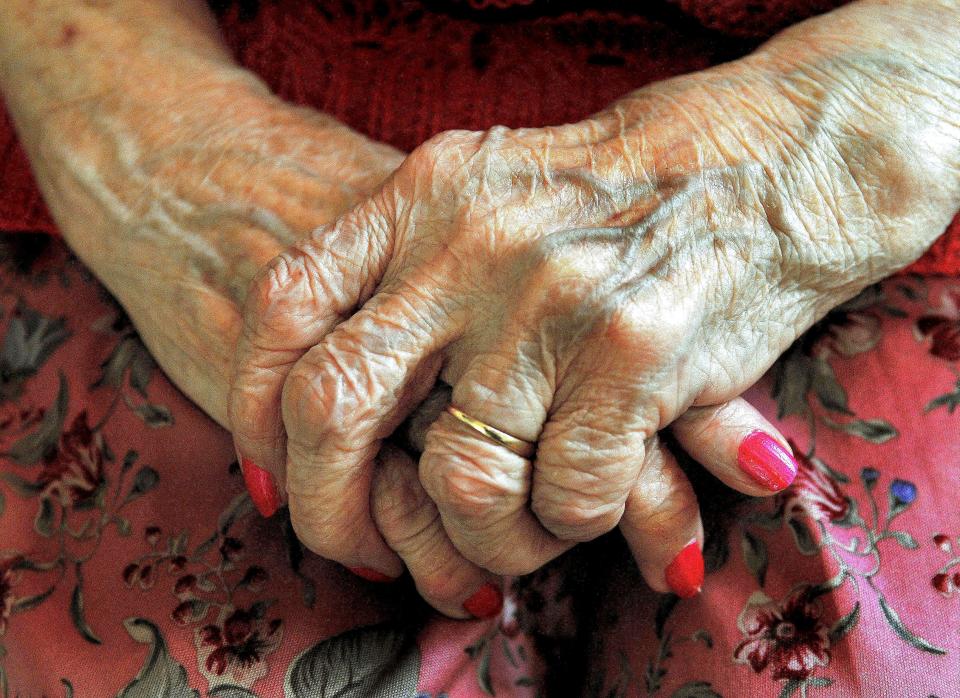District of Montana takes part in Justice Department’s efforts to protect older adults

The United States Department of Justice (DOJ) announced on Tuesday the results of its efforts over the past year to protect older adults from fraud and exploitation.
During the past year, the DOJ and its law enforcement partners tackled matters that ranged from mass-marketing scams that impacted thousands of victims to bad actors scamming their neighbors. Substantial efforts were also made over the last year to return money to fraud victims. The department also announced it is expanding its Transnational Elder Fraud Strike Force to amplify efforts to combat scams originating overseas.
“We are intensifying our efforts nationwide to protect older adults, including by more than tripling the number of U.S. Attorneys’ offices participating in our Transnational Elder Fraud Strike Force dedicated to disrupting, dismantling and prosecuting foreign-based fraud schemes that target American seniors,” said Attorney General Merrick B. Garland. “This expansion builds on the Justice Department’s existing work to hold accountable those who steal funds from older adults, including by returning those funds to the victims where possible.”
“We are pleased to be participating on this important task force and applaud the Attorney General for his commitment to protecting older adults. Scamming older adults, who often trust and depend on others for help and care, will not be tolerated by our office. We are committed to fully investigating and prosecuting those who try to exploit our older citizens,” U.S. Attorney Jesse Laslovich said.
During the period from September 2021 to September 2022, DOJ personnel and its law enforcement partners pursued approximately 260 cases involving more than 600 defendants, both bringing new cases and advancing those previously charged.
This past year, the District of Montana prosecuted a number of cases in which older adults were victims of fraud or scams. The cases include:
Ronald Lords, of Corvallis, an ex-lawyer who was sentenced to prison for defrauding investors in a real estate scheme.
William Tempel, a Great Falls construction company official who was sentenced to prison for embezzling from a client.
Kathy Hendrickson, of Washington, who was sentenced to prison for cyberstalking and harassing a Montana man.
Ira Westbrook of Bozeman, who pleaded guilty and is pending sentencing for stealing government benefits while acting as a fiduciary.
Elizabeth Stephenson of Billings, who was sentenced to prison in an identity theft case.
Debra Roeber of Butte, who was sentenced to prison for stealing more than $600,000 from a blind victim who was under her care.
Theresa Chabot of Kalispell, who pleaded guilty and is pending sentencing for running a money mule business for elder abuse.
The DOJ also highlighted three other efforts: expansion of the Transnational Elder Fraud Task Force, success in returning money to victims and efforts to combat grandparent scams.

The department announced that as part of its continuing efforts to protect older adults and bring perpetrators of fraud schemes to justice, it is expanding the Transnational Elder Fraud Strike Force, adding 14 new U.S. Attorney’s Offices. Expansion of the Strike Force will help to coordinate the Department’s ongoing efforts to combat the largest and most harmful fraud schemes that target or disproportionately impact older adults.
In the past year, the DOJ has notified over 550,000 people that they may be eligible for remission payments. Notifications were made to consumers whose information was sold by one of three data companies prosecuted by the department and were later victims of “sweepstakes” or “astrology” solicitations that falsely promised prizes or individualized services in return for a fee. More than 150,000 of those victims cashed checks totaling $52 million, and thousands more are eligible to receive checks.
Also notified were consumers who paid fraudsters perpetrating person-in-need scams and job scams via Western Union. In the past year, the DOJ has identified and contacted over 300,000 consumers who may be eligible for remission. Since March 2020, more than 148,000 victims have received more than $366 million as a result of a 2017 criminal resolution with Western Union for the company’s willful failure to maintain an effective anti-money laundering program and its aiding and abetting of wire fraud.
Over the past year, the department pursued cases against the perpetrators of “grandparent scams,” otherwise known as “person-in-need scams.” These scams typically begin when a fraudster, often based overseas, contacts an older adult and poses as either a grandchild, other family member or someone calling on behalf of a family member. Call recipients are told that their family member is in jeopardy and is urgently in need of money.
When recently sentencing one of eight perpetrators of a grandparent scam indicted under the Racketeer Influenced and Corrupt Organizations Act, a federal judge described such scams “heartbreakingly evil.” The DOJ is working with government partners and others to raise awareness about these schemes.
Reporting from consumers about fraud and fraud attempts is critical to law enforcement's efforts to investigate and prosecute schemes targeting older adults. If you or someone you know is age 60 or older and has been a victim of financial fraud, help is available from the National Elder Fraud Hotline: 1-833-FRAUD-11 or 833-372-8311.
This Department of Justice Hotline, managed by the Office for Victims of Crime, is staffed by experienced professionals who provide personalized support to callers by assessing the needs of the victim and identifying the next steps. Case managers will identify appropriate reporting agencies, provide information to callers to assist them in reporting or connect them with agencies, and provide resources and referrals on a case-by-case basis.
The hotline is staffed seven days a week from 4 a.m. to 9 p.m. English, Spanish and other languages are available. More information about the DOJ's elder justice efforts can be found on the Department’s Elder Justice website, www.elderjustice.gov.
Some of the cases that comprise this announcement are charges, which are merely allegations, and the defendants are presumed innocent unless and until proven guilty beyond a reasonable doubt in a court of law.
This article originally appeared on Great Falls Tribune: Montana takes part in DOJ's efforts to protect older adults

